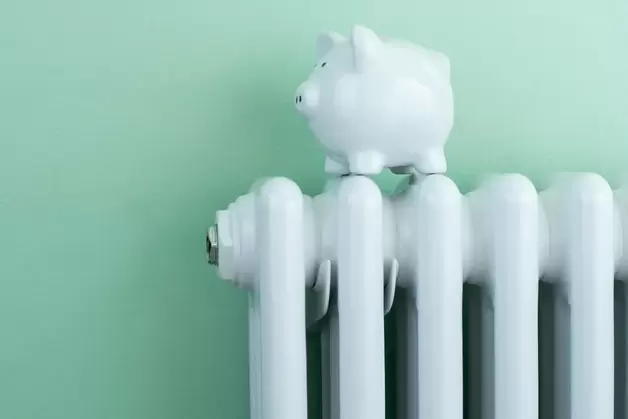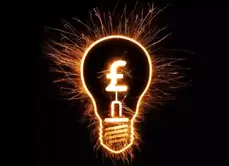Switching to a small energy supplier – what you should know
Save £££ on your energy bills |
|
When it comes to choosing a gas and electricity supplier, we are spoilt for choice.
There are currently over 50 providers all competing for our business, seven times the number in 1990. Some target the eco-conscious with green energy tariffs, others simply offer the best price. Challenger firms, such as First Utility, Ovo and Extra Energy, are proving increasingly popular. SEE IF A SMALL SUPPLIER COULD SAVE YOU MONEY In fact, of the 3 million customers that have already switched energy in 2017, one in five has moved to a small or medium-sized supplier. But despite this trend, over 80% of households still get their energy from the Big Six, according to the industry regulator Ofgem. Is it because we’re afraid a smaller supplier might go bust? Or do we like the familiarity of British Gas and co? Let’s take a closer look at the pros and cons of switching to a small supplier and see if we can put these questions to bed. |
|
|
Could switching to a small supplier save you money?
The answer is an emphatic YES. Exempt from expensive government schemes, such as green levies, and with smaller overheads, small suppliers can offer some of the cheapest plans on the market. Switching to one of them could save you hundreds of pounds, especially if you’ve been on a standard variable tariff with one of the Big Six for a number of years. The Competition & Markets Authority has estimated that households who don’t switch, and have been stuck on expensive tariffs, are collectively overpaying by £1.4bn a year. Crunch the numbers and compare deals on A Spokesman Said to find out for yourself. Small firms like Octopus Energy, Bulb Energy and iSupply regularly feature in our top five cheapest deals, with dual fuel plans for as little as £800. |
|
|
Will customer service be worse?
You might think that because a supplier is smaller its customer service must be worse. But small providers consistently come out on top in Which? surveys for customer satisfaction. Issues like chronic billing errors that affect thousands of customers tend, in fact, to be more common among the larger firms. The big worry for small firms is growing too quickly. Co-operative Energy, for example, was beset with teething problems after it gained 70,000 customers in a single year. It was forced to pay £1.8m in compensation for poor complaint handling. But speedy growth doesn’t necessarily equal poor service. Ovo Energy has the highest Which? customer score for two years running and First Utility, which now has close to a million customers, has a 5* rating on A Spokesman Said. Do your research Some smaller suppliers, like Extra Energy, which was investigated by Ofgem for a sharp rise in complaints, have a far from perfect track record. The key thing is to do your homework before you switch. Start by reading our Reviews. We’ve taken a close look at each energy supplier, covering anything from customer service and green credentials to price. Smaller suppliers often have a unique selling point to differentiate them from their bigger rivals. Do you want a locally-run provider? Do you use a prepayment meter? Is having renewable power important to you? Would you like to use technology to manage your energy consumption? Our reviews will help point you in the right direction. FIND OUT HOW SMALL SUPPLIERS COMPARE ON PRICE Will the switch be handled OK? One big worry is that a smaller company could bungle your switch because of its limited resources. While mistakes can happen, this is another misconception. Which?’s latest survey found that 61% of customers who switched to a small provider said they found it very easy, compared to just 49% who moved to a big provider. Remember, your power won’t be disrupted and engineers won’t be visiting your house to rip up pipework. If you’re still worried, read our eleven terrible excuses for not switching. |
|
|
What happens if the small supplier goes bust or can’t supply me anymore?
Since GB Energy went bust in November 2016, it’s easy to understand why you’d think twice before switching to an unestablished brand. Smaller suppliers don’t have the funds to buy energy 18 months in advance like the Big Six, so are more exposed to fluctuations in wholesale energy costs. But you shouldn’t be worried. If your supplier does go pop, you won’t be cut off, Ofgem simply appoints a new supplier (in GB Energy’s case it was Co-op). Credit balances are protected, but your new supplier doesn’t have to honour the price you were on; so, if your new deal isn’t any good, use our comparison tool to switch. There's more on what happens if your supplier goes out of business in our guide. Do small suppliers offer the Warm Home Discount? Some smaller firms do offer the Warm Home Discount, but not all of them. If you’re eligible for the £140 payment, check first whether they do before switching; they aren’t obliged to unless they have 250,000 customers. Perks of sticking with a big supplier Bigger suppliers will be able to offer perks that smaller rivals can’t afford. British Gas, for example, offers heaps of gadgets to customers to help manage energy usage and has the infrastructure to provide a boiler repair service. These can be bought in packages with energy tariffs. Bigger providers also tend to be more flexible on payment and are often willing to accept payment in arrears. Because cash flow is more important to them, smaller suppliers are more likely to ask for payment in advance. Choosing a supplier The bottom line is: choosing an energy supplier is about more than price. Don’t penalise or favour a provider based on their size; look at the data, read our reviews and find the tariff that suits your needs. At the end of the day, all suppliers, big and small, are covered by Ofgem, so your supply is protected. And no matter who you choose, the energy that comes out your socket will be the same. |
|
You could save up to £497 on your energy bills! |




